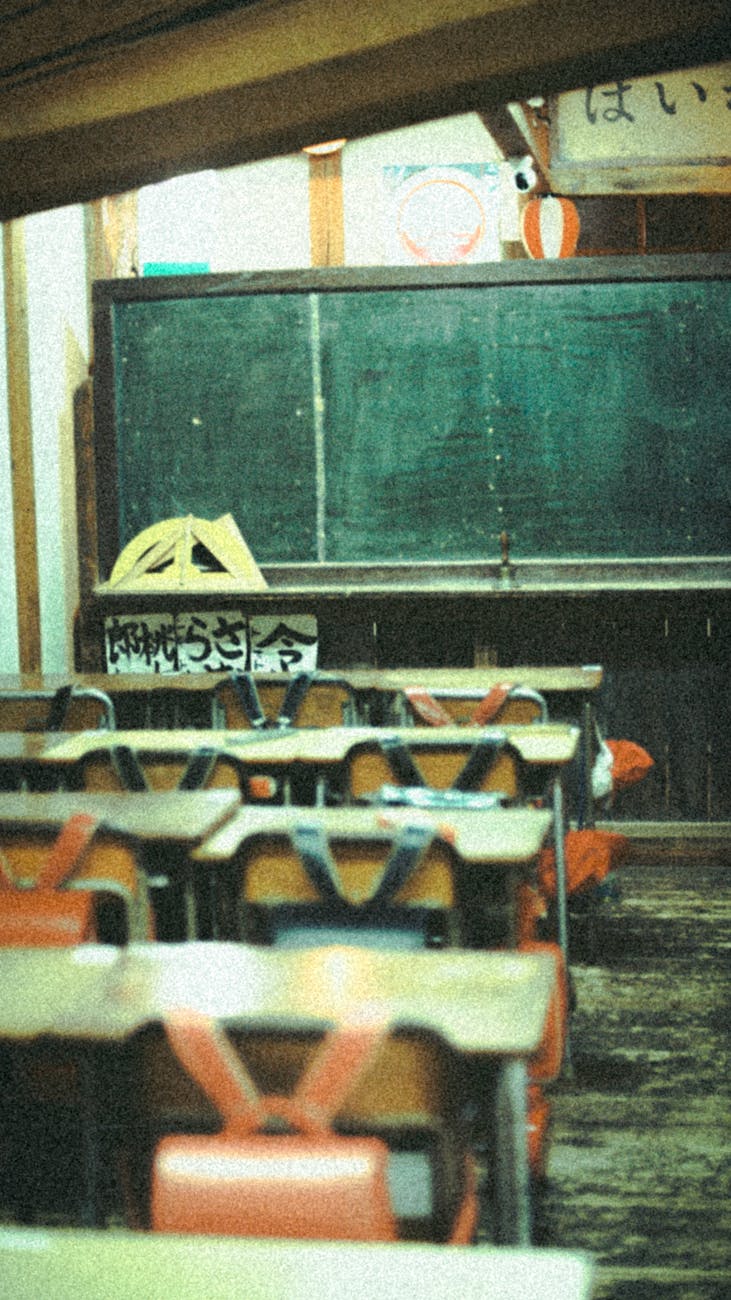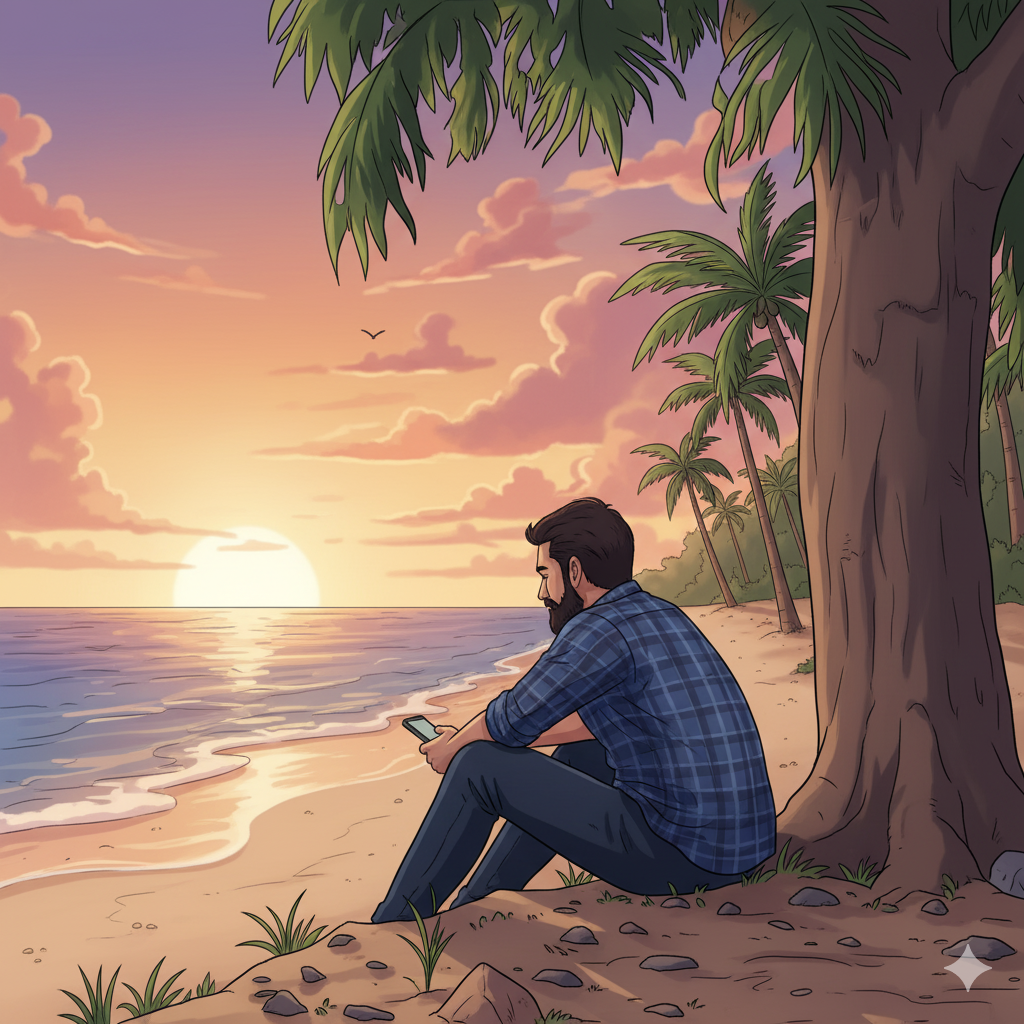The flickering gaslight cast long, dancing shadows across Professor Elara Thorne’s classroom, illuminating the expectant faces of her ten students. It was a small class, tucked away in a forgotten corner of the prestigious, yet increasingly sterile, University of Veridia. The course title, etched in elegant script on the chalkboard, read: “The Forgotten Art of Being Human.” In a world obsessed with technological advancement and the relentless pursuit of efficiency, Elara’s class felt like a sanctuary, a whispered rebellion against the relentless march of progress. Her students, a motley collection of misfits and dreamers, were drawn to the promise of something more, something lost in the digital hum of their daily lives.
Elara, a woman of indeterminate age with eyes that held the wisdom of centuries, began the semester not with a syllabus, but with a question. “What does it mean to be human?” she asked, her voice a gentle melody in the quiet room. The question hung in the air, heavy with unspoken anxieties and yearnings. The students, accustomed to lectures and quantifiable data, shifted uncomfortably in their seats. This wasn’t the kind of question that yielded easy answers, the kind that could be Googled or summarized in bullet points. It was a question that demanded introspection, vulnerability, and a willingness to delve into the messy, beautiful complexities of the human condition.
Over the weeks that followed, Elara guided her students on a journey of self-discovery. They explored ancient philosophies, debated the nature of consciousness, and practiced the lost art of mindful conversation. They learned to listen not just to the words being spoken, but to the silences between them, to the unspoken emotions that flickered in their classmates’ eyes. They rediscovered the power of touch, the simple act of holding hands in a circle, feeling the warmth and connection that flowed between them. They learned to appreciate the beauty of imperfection, the cracks and flaws that made each of them unique, each of them human. They explored the natural world, feeling the earth beneath their feet, breathing in the scent of pine needles and damp earth, reconnecting with the rhythms of the planet that had birthed them.
One student, a young programmer named Kai, initially approached the class with skepticism. He was a creature of logic and code, a believer in the power of algorithms and artificial intelligence. He saw emotions as messy variables, unpredictable and inefficient. But as the semester progressed, Kai began to see the limitations of his purely rational worldview. He found himself drawn to the quiet moments of reflection, the shared vulnerability of the group discussions. He began to appreciate the nuances of human interaction, the subtle cues of body language and tone of voice that conveyed meaning beyond words. He realized that the very things he had dismissed as weaknesses – empathy, compassion, vulnerability – were in fact the source of human strength and connection.
Another student, Anya, a budding artist, found herself struggling with the pressure to conform to the prevailing aesthetic trends of the digital age. She felt suffocated by the relentless pursuit of perfection, the constant barrage of filtered images and curated online personas. In Elara’s class, Anya discovered the beauty of imperfection, the power of vulnerability in art. She learned to embrace her own unique style, to express her emotions through her brushstrokes, to create art that was raw, honest, and deeply human.
Elara’s teaching methods were unconventional. There were no textbooks, no exams, no grades. Instead, she encouraged her students to learn from each other, to share their stories, to embrace the messy, unpredictable nature of human experience. She taught them the importance of empathy, the power of forgiveness, the beauty of silence. She showed them that true knowledge wasn’t something to be acquired, but something to be uncovered, something that resided within each of them, waiting to be awakened.
As the semester drew to a close, the students found themselves transformed. They had learned not just about being human, but how to be human. They had rediscovered the forgotten language of connection, the quiet power of empathy, the profound beauty of imperfection. They had learned to embrace their vulnerabilities, to celebrate their differences, to find solace in the shared human experience.
One evening, as the last rays of sunlight streamed through the classroom windows, Elara led her students in a final exercise. She asked them to close their eyes and imagine a world where the art of being human wasn’t forgotten, a world where connection, empathy, and vulnerability were valued above all else. When they opened their eyes, there was a shared understanding in the room, a sense of hope and possibility. They knew that the journey had just begun, that the work of being human was a lifelong practice, a constant unfolding of self-discovery.
The final class ended not with a farewell, but with a promise. A promise to carry the lessons they had learned out into the world, to be ambassadors of human connection, to remind others of the forgotten art of being human.
As they stepped out of the classroom and into the bustling city streets, the students felt a sense of both sadness and exhilaration. They knew that the world outside wouldn’t always be receptive to their message, that the relentless march of progress would continue to prioritize efficiency and productivity over human connection. But they also knew that they had been given a precious gift, a gift that could not be taken away. They had been reminded of what it meant to be human, and they were determined to share that gift with the world.
Kai, the programmer, found himself drawn to the faces of strangers on the street, seeing not just algorithms and data points, but stories, emotions, and shared humanity. Anya, the artist, found herself sketching the imperfections of the urban landscape, finding beauty in the cracks and crevices, the worn edges and faded colors. Each of the students, in their own way, began to weave the threads of human connection back into the fabric of their lives.
Elara watched them go, a gentle smile playing on her lips. She knew that her work was far from over, that the battle against the dehumanizing forces of progress would be a long and arduous one. But she also knew that the seeds of change had been planted, that the forgotten art of being human was slowly beginning to re-emerge, whispered on the wind, carried on the breath of those who dared to remember.
The gaslight flickered, casting long shadows across the empty classroom. The silence was broken only by the gentle rustling of papers on the desk, remnants of a semester dedicated to the exploration of the human heart. Elara gathered her belongings, a sense of quiet satisfaction filling her chest. She knew that the journey had just begun.

The following semester, Elara’s class was full, with students eager to learn the forgotten art of being human. The whispers had become a murmur, a growing chorus of voices seeking connection, empathy, and meaning in a world that often seemed devoid of all three. Elara, with her gentle wisdom and unwavering belief in the power of the human spirit, continued to guide her students on their journey of self-discovery, reminding them that even in the darkest of times, the spark of humanity could never be extinguished.
And so, in a forgotten corner of the University of Veridia, a quiet revolution was taking place, a revolution of the heart, a revolution that reminded the world of the forgotten art of being human. One conversation, one act of kindness, one shared moment of vulnerability at a time.
Elara knew that the journey was far from over, but she also knew that the seeds of change had been planted, and that with each passing semester, the whispers would grow louder, the murmur would become a roar, and the forgotten art of being human would once again take its rightful place in the world. The seeds of empathy, sown in the fertile ground of the human heart, would blossom into a garden of connection, reminding everyone of the profound beauty and enduring power of being human.






Leave a Reply